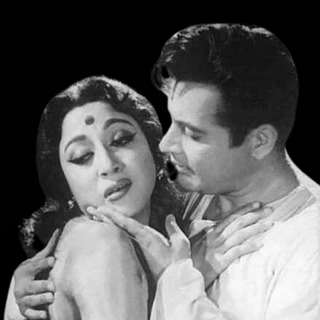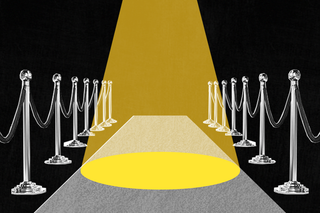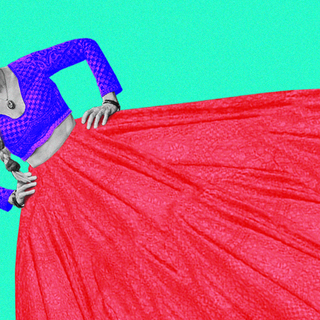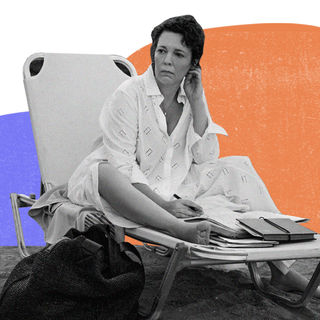
The Golden Globes Boycott Shows the Futility of Awards Without the Spectacle
The awards, without a televized ceremony, stand out as pointless without celebrities to carry their cultural weight.

“Many talented people of color were snubbed in major categories; unfortunately there’s nothing we can do about that, the Hollywood Foreign Press are all very very racist,” said English comedian Ricky Gervais at the 2020 Golden Globes ceremony, which he hosted. This unintentionally prescient statement forms the basis of this year’s ceremony — or lack thereof. Major studios and celebrities alike are boycotting the event — with Tom Cruise even going so far as to return three of his trophies.
The Golden Globes Awards this year took place as a private event — sans red carpet, ceremony, glitz, or glamor.
The controversy is this: the Hollywood Foreign Press Association (HFPA), a coalition of journalists who dole out the coveted trophies every year, was revealed by The Los Angeles Times to be a somewhat dubious coterie of people from all over the world. The organization was beset with scandal for a long time, and reports uncovered several ethical lapses, in-fighting, and unprofessional conduct within the organization. Moreover, of the 87 members, not one of them is black, pointing to a lack of diversity.
A lawsuit by a Norwegian journalist accused the HFPA of “a culture of corruption,” and claimed that it worked like a cartel — monopolizing access in Hollywood and gatekeeping entry. The suit also claimed that the members accept “thousands of dollars in emoluments” behind a “code of silence,” from the same studios they later award generously. A case in point: Emily in Paris (2020), a critically panned show, receiving two Golden Globe nominations, after more than 30 HFPA members were flown to Paris to visit its sets. On the other hand, I May Destroy You (2020) — a series delving into the delicate intersections of race, trauma, sexual assault, and whether there can ever be closure from it — was snubbed.
“Those who have interacted with the organization describe members falling asleep during screenings, hurling insults at one another during news conferences and frequently engaging in personal feuds,” The Times noted. The overwhelming concerns that prompted major studios to boycott the awards and NBC to decline to broadcast them, were that the HFPA carry outsized power in the awards.
The Golden Globes are a strange beast in Hollywood. They are some of the most important awards and are also the most mocked, simultaneously. The Independent described them like this: ” the “boozy grandmother on the dancefloor” of awards shows: strange and frightening, yet impossible to look away from.”
Of all the big awards in the film and TV industry, the Golden Globes particularly stand out as the “loose” and “boozy” counterpart of the more respectable Oscars or Emmys. “Arts awards might be inherently silly and driven more by hype and glad-handing than a serious assessment of artistic merit, but the Globes have a way of stripping off the veneer of respectability,” notes GQ.
Their nominations have sometimes been head-scratching at best, downright unjust at worst. But the whole point of the show has been that they’re just fun to watch. Clips of Ricky Gervais skewering celebrities for their hypocrisy for the five years he’s hosted them continue to surface on social media, and strange choices such as Get Out and The Martian being nominated under the comedy category made for fun think-pieces.
Related on The Swaddle:
And yet, year after year, they draw high ratings and are NBC’s second-most-watched spectacle after sports. This year, however, there is nothing to even see. If the major draw was the frivolous air, the tipsy ramblings of hosts, the red carpet glamor, and the general spectacle — did they even happen this year, without any of that? The fanfare is what many critics have cited as diluting the Globes in particular — with members of the HFPA known to take selfies with stars and covet favors in exchange for votes. Moreover, it is well-known that the awards don’t matter, the show is what does.
“I’ve heard that the pleasure of the event arises from the fact that the nominees know that the awards don’t matter—that the ceremony lacks the solemnity and the self-importance, let alone the actual importance, of the Oscars, and so the guests relax, some of them drink, and they lend the show a shambling charm that distinguishes it from Hollywood’s own self-celebration,” writes Richard Brody, for The New Yorker.
When the weight of the award itself lies in the spectacle, attention, and public adulation it draws for recipients, they mean very little without. Indeed, the show is the award, and the show, sometimes, must not go on. What then?
Without any of that this year, who cares? For winners to actually feel like they’ve accomplished something, they arguably require an audience to devour their dainty waves, to cheer their thank yous to their families, and their sometimes political statements that prompt a flurry of Twitter activity. In short, the Globes can be one elaborate hype-beast for stars who have already proved their mettle elsewhere.
But the question prompts one about other award shows in Hollywood — even in Bollywood, for that matter: Do awards really matter? How many of them, save for the Oscars, actually spell prestige and genuine recognition of talent? Other domains — such as publishing, fine arts, science and literature — have awards too, but there hasn’t been a particular time in the history of network television when the Nobel Prizes drew spectacular viewership. That form of clout is different altogether — the very branding is in shunning fame, celebrity, and a focus on pure art. For every kind of award, therefore, there is an accompanying tradition that makes them what they are.
In film and TV, the allure of award ceremonies is the allure of celebrity and stardom. Awardees gain their clout from being at the film industry’s biggest party and winning; and the party itself is a big deal because the stars show up. The seductive nature of fame makes film — even music — awards the subjects of wishful daydreaming, where the plebs can pretend to hold up a hairbrush and give a long and tearful acceptance speech. It isn’t in being recognized but in being seen that the power of the movie award lies.
This year, with actors decrying the HFPA and the Globes themselves, we may be seeing a paradigm shift in the making. Last year’s host Ricky Gervais’ monologue was widely discussed as hailing the end of celebrity. Where previously the awards reinforced star-power through viewers’ undying fandom and admiration, in recent years there is growing disillusionment, and the stardom appears less shiny.
People are just tired of celebrities now — especially in the wake of the vastly destabilizing effects of the coronavirus pandemic. It may be argued that stars have realized this, and their belated boycott of the whole affair may be belated recognition of the fact that in order to be taken seriously, they now have to really act the part of serious artists. This would require real credibility, and not a facade of it as has thus far been the case.
With all the controversy around the show this year, one thing is clear: the Globes are not what the Globes without the party. But now, not many like the party very much.
And when nobody can see it, did it even happen? The (controversial) jury is still out on that.
Rohitha Naraharisetty is a Senior Associate Editor at The Swaddle. She writes about the intersection of gender, caste, social movements, and pop culture. She can be found on Instagram at @rohitha_97 or on Twitter at @romimacaronii.
Related


The Buzz Cut: TV’s Quintessential White Woman Confidently Turns Lehenga Into Saree Just By Saying So
